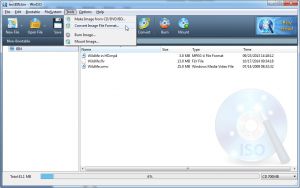 How To Disable a Webcam To Protect Your Privacy
How To Disable a Webcam To Protect Your Privacy
Several years ago, there weren't as many people who cared about someone else spying on them through their webcams. Mainly this was due to the fact that this action was considered to be almost impossible and it was an issue only for extremely concerned users. However, recent news indicate that government agencies (such as FBI and NSA) have been using this technology since the 1990s, so, it is safe to say that remote webcam monitoring is real. If you are not worried enough about a government agency spying on you, you might also want to know that hackers can also spy on you through your webcam, using phishing techniques and malware attacks (some can even remotely monitor your webcam without even turning on the indicator light). If you are like me, you might not feel that comfortable knowing that someone else can freely access your webcam and watch all the things that you do in your room without leaving any trace. Luckily, there are several to prevent this from happening and protect your privacy. So if you are concerned about your privacy the guide below may be of use.
1. Unplug the webcam
External Webcam
The easiest method to protect yourself from remote webcam monitoring is simply unplugging your external webcam. Just leave the webcam in its usual position and simply unplug the USB cable from your computer and whenever you don't intend to use it. It is simple and efficient, as nobody else will be able to physically plug your webcam back in over the Internet.
2. Obscure your webcam
Webcam Cover
Another way to protect your private space from webcam spying is obscuring the lens of your built-in camera. You can easily strap a piece of electrical tape over the camera (or cover it with other items) so that, in case your webcam gets hacked, the bad guys won't be able to see anything you are doing. However, this method is not that efficient, as you may accidentally damage your hardware or end up having a poor video quality due to the residue left by the piece of tape.
There are also various products that you can buy (for a relatively small price) to obscure your camera without damaging it (like CamPatch Webcam Cover or C-SLIDE). You can find plenty of these on e-Bay, Amazon or any other webstore. Just type in 'webcam covers' as a search query.
3. Use a powerful anti-virus
Anti-Virus
Even though this will not disable your webcam, using a good anti-virus can also help you protect your privacy. Having an up-to-date virus protection software can shield your computer against most types of malware that hackers use to gain access and monitor your computer's webcam. Most of these applications will even notify you when someone else is trying to access your computer over a network via remote administration tools. However, you might want to take into consideration that this method is not bullet-proof, because your anti-virus might not be able to detect every possible threat, but, at least, it's better than nothing.
4. Disable the webcam
4.1 Disable the webcam through BIOS
If you own a system with an integrated webcam, then the most secure and safest way to switch off your camera is accessing BIOS. If you don't know how to access BIOS, then simply restart your computer and follow the on-screen instruction (it is usually performed by pressing the F2, F8, F12 or the delete key, but there are also computers that use a combination of keys). Once you enter BIOS, you need to navigate through the available options, locate your webcam (it can be found under various names, such as "integrated webcam", "webcam" or "CMOS camera") and simply disable it (or lock it).
4.2 Disable the webcam through the Device Manager
Device Manager
If you can't disable the webcam from BIOS or if you simply don't want to use the above-mentioned method, because it seems like quite a hassle, then you can easily render your webcam incapable by accessing the "Windows Device Manager" (from the Control Panel or by right-clicking the My Computer icon and selecting Proprieties). Once you have done that, open the "Imaging Devices" tab and double-click on your webcam. A new window will appear. Using this window, you can either disable your webcam drive or completely remove it. However, removing it can be quite annoying if you are using your webcam on a regular basis, as you will have to enable/install the drivers of your webcam every time you want to use it.
Conclusion
As you can see, there lots of ways to protect your room from webcam spies. Hope you've found this guide useful. Choose any of the presented methods (I, personally, would opt for covering the webcam lens) and leave the spies no chances.





Comments
Subscribe to comments